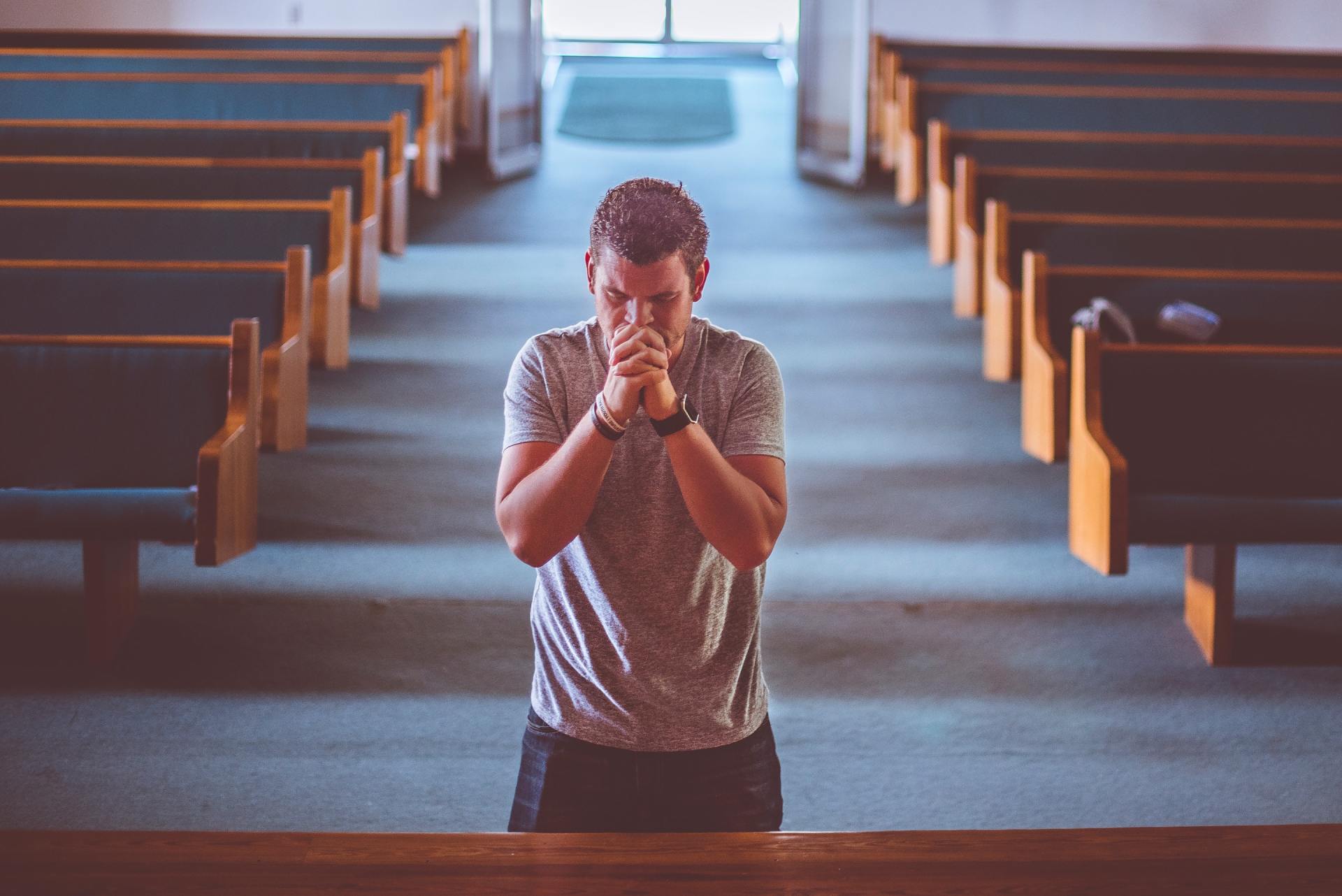Taking A Seat, Taking A Knee, and Taking A Stand
“Those who love a system enough to want it to be what it says it is, too often find themselves labeled the enemy within.”
~Joan Chittister, Called to Question: A Spiritual Memoir , 2004, p. 51
"Talk about biting the hand that feeds you. I can't fathom the ingratitude of American soccer star Megan Rapinoe's attitude toward America."
The Era of The Ungrateful American
, by Dr. Jerry Newcombe: http://bit.ly/2xKQokc
"Contrary to the attacks on Rapinoe’s patriotism, just days before the 2019 final she described herself in an interview
as “very deeply American,” saying the U.S. was a “great country,” albeit one which should “strive to be better.”
Snopes: https://www.snopes.com/fact-check/rapinoe-flag-stomp/
"To Bonhoeffer, true discipleship now demanded political resistance against this criminal state. He wrote that the Christian must live maturely and responsibly in the world, and live by God's grace, not by ideology."
Dietrich Bonhoeffer, Priest , http://bit.ly/2xM8DFG
Is taking a knee during the national anthem unpatriotic? Is it an act of disloyalty? Does it show ingratitude to the nation that gave us the right to kneel in the first place?
Well, it could, couldn't it, if that was what it was intended to portray.
But it could also be a profound act of character, couldn't it? If you don't think that's possible, into what category would you put Rosa Parks? Martin Luther King? Where would you put Dietrich Bonhoeffer?
Breaking the law is irresponsible. Breaking the law is the equivalent of
spitting in the face of the democratic process.
Within a religious community, breaking with doctrinal law is
blasphemous, heretical. Breaking the law
is socially unacceptable. Undesirable in
civil nations or religious institutions.
Disruptive. It can result in the
ignominy of jail, excommunication, and worse, extending to the horrendous pain
of execution. Law breakers are social
outcasts, criminals.
Breaking the rules of social convention is irresponsible. In society, there is etiquette, there are ways “we do things around here”. Breaking social convention is impolite, rude, a slap in the face of those who carry the banner for “society” and the established, the establishment, the stable, and oh yes, the civilized.
The eight white clergymen who issued a public statement “A Call for Unity” on April 12, 1963, in Birmingham, Alabama were doing the “right” thing. They reinforced the plea they had made earlier in the year that “honest convictions in racial matters should be pursued in the courts” and that the courts’ decisions should be peacefully obeyed. They “strongly urged our own Negro community to withdraw support from these demonstration and to unite locally in working peacefully for a better Birmingham. When rights are consistently denied, a cause should be pressed in the courts and in negotiations among local leaders, and not in the streets. We appeal to both our white and Negro citizenry to observe the principles of law and order and common sense.”
Further, they mentioned that the demonstrations and sit-ins were “directed and led in part by “outsiders”. One of those outsiders in question was Martin Luther King, Jr., who had been arrested just the day before, along with around 50 others, for disobeying a court injunction barring demonstrations. King was a rabble rouser, a rule breaker, and a criminal. And not for the first time. He had been arrested 13 times before (Maranzani, April 16, 2013).
Four days later, on April 16, 1963, Dr. King sent his now-famous response. If you haven’t read it yet, please do. In my view, every citizen should read this profound, important document. It is twenty type-written pages, which he started drafting by writing in the margins of the newspaper containing the article from the 8 clergy, which had been “smuggled” to him, then writing on pieces of paper he gave his attorneys, and which was then compiled by a supporter, Wyatt Walker (Maranzani, April 16, 2013).
His words, ostensibly written in response to the clergy’s letter but actually for the world at large, are applicable to all people who care about the spirit of what the flag stands for, who care about the goals of democracy more than the laws which purportedly serve democracy.
“You express a great deal of anxiety over our willingness to break laws. This is certainly a legitimate concern. Since we so diligently urge people to obey the Supreme Court’s decision of 1954 outlawing segregation in the public schools, it is rather strange and paradoxical to find us consciously breaking laws. One may well ask, “how can you advocate breaking some laws and obeying others?” The answer is found in the fact that there are two types of laws: There are just laws and there are unjust laws. I would agree with Saint Augustine that “An unjust law is no law at all.” (King, 1963, p. 7).
He goes on to describe the differences between just and unjust laws.
A just law is a man-made code that squares with the moral law or the law of God. An unjust law is a code that is out of harmony with the moral law…Any law that uplifts human personality is just. Any law that degrades human personality is unjust. All segregation laws are unjust because segregation distorts the soul and damages the personality (King, 1963, p. 7).
For me, his most powerful statement is that “We can never forget that everything Hitler did in Germany was “legal” and everything the Hungarian freedom fighters did in Hungary was “illegal.” It was “illegal” to aid and comfort a Jew in Hitler’s Germany.” (King, p. 9). His point makes it impossible for credible people to dispute that some laws are unjust and must be changed or, if that proves impossibly hard, broken.
There are a number of other points he makes but two are particularly pertinent to a discussion about pursuing the spirit of democracy. First, he says being considered an extremist gave him satisfaction. “Was not Jesus an extremist in love” (p. 12), he says, “wasn’t Amos an extremist for justice” and Paul “for the gospel of Jesus Christ”, and he goes on to list Martin Luther, Abraham Lincoln, and Thomas Jefferson. And then he makes the key distinction, asking what kind of extremist one will be, “extremists for hate” (p. 13) or for love. For the cause of justice or for injustice.
He expresses disappointment in the white church and its leadership and that he “longed” for southern, white ministers to call on their congregations to follow the desegregation decree because it is “morally right and the Negro is your brother” (p. 15) instead of complying simply because it is the law, or just standing on the sidelines. “In the midst of a mighty struggle to rid our nation of racial and economic injustice” he felt these ministers were committed to the status quo instead of change and to leading that change. He goes further, saying the church as the body of Christ has been scarred through the fear of being nonconformists. This is so different from the early Church, when Christians came to town and disturbed the power structure, were accused of being “disturbers of the peace” and “outside agitators” (p. 16). The current church is weak, ineffective, and supports the status quo, King asserts. But he is so grateful, he says that “some noble souls from the ranks of organized religion have broken loose from the paralyzing chains of conformity and joined us as active partners in the struggle for freedom” (p. 17). Powerful language! It is language as applicable in 2015 as it was in 1963. He ends with these still unfulfilled words,
"Let us all hope that the dark clouds of racial prejudice will soon pass away and the deep fog of misunderstanding will be lifted from our fear-drenched communities and in some not too distant tomorrow the radiant stars of love and brotherhood will shine over our great nation with all of their scintillating beauty (p. 20).
Wow.
Some matters just never leave us, do they, and one
of them is that breaking laws and rules – explicit or tacit – is sometimes more
supportive of the espoused values of the institution or, in this case a
country, than conforming to what the majority or the powerful would like you to do to keep people
in line.
Taking a knee during a national anthem does not break any law. Taking a seat at the front of a bus seems so normal. But they certainly caused a stir, didn't they?
I can’t speak to the motives of Megan Rapinoe, Colin Kaepernick or others who take a knee during a national anthem.Though I believe they are heartfelt about injustice I, like you, don’t really know what is in their hearts. But I do believe that taking a knee during a national anthem is an act that could be one that should resonate with the spirit of a country founded in revolution and opposition to tyranny. I believe this just as I believe that Rosa Parks and many others who broke unfair written or unwritten rules and laws were doing so in the spirit of life, liberty, and the pursuit of happiness that this country claims to represent and has stood for around the globe.
Thoughtful people will disagree on matters such as this respectfully. Many of them will think about them, perhaps discuss them, or read about them with the intent to develop a deeper understanding of the issues involved. Others will demagogue it, create sound bites, or use these symbolic acts to further other agendas. All this is of course happening right now.
I guess that's the way things go in a democratic society. I don't write much about current politics here at Profound Living, I'll leave that to those who follow such matters more comprehensively. But profound living and learning, I believe, means working to understand matters at ever deeper levels and this is a good one to give some thought to. These matters are, after all, foundational questions for a society which wishes to be free, and foundational questions we must ask ourselves about who we really are and what we think is most important.
The ultimate question is to ask ourselves what we - individually - need to do to look at these kinds of tensions with clearer and wiser eyes.
References
Chittister, J. (2004). Called to question: a spiritual memoir. Lanham, MD: Sheed & Ward.
Martin Luther King, J. (1963). Letter from a Birmingham Jail. Retrieved from https://kinginstitute.stanford.edu/king-papers/documents/letter-birmingham-jail
Maranzani, B. (April 16, 2013). King’s Letter from Birmingham Jail, 50 Years Later . Retrieved from http://www.history.com/news/kings-letter-from-birmingham-jail-50-years-later












